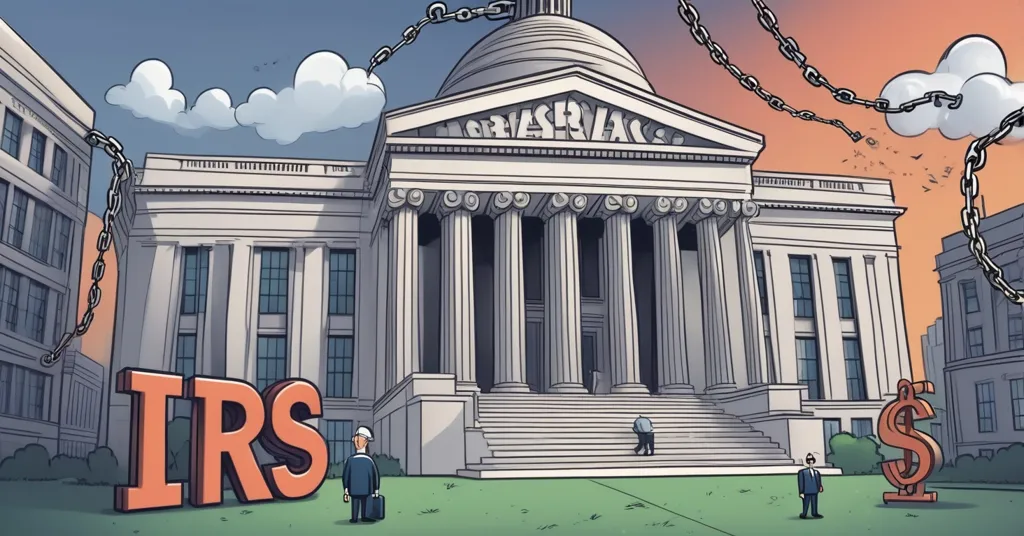U.S. Senate Votes 70-28 to Repeal IRS DeFi Broker Rule, Awaiting Trump’s Approval

U.S. Senate Votes to Repeal Controversial IRS DeFi Broker Rule
The U.S. Senate has decisively voted 70-28 to overturn a contentious IRS rule that would have imposed strict tax reporting requirements on decentralized finance (DeFi) platforms. This significant move, which followed a similar resolution from the House of Representatives, awaits President Donald Trump’s expected approval. The rule, finalized in December 2024, sought to require DeFi platforms to report user transactions to the IRS, sparking widespread criticism for potentially compromising privacy and hindering industry growth.
- U.S. Senate votes 70-28 to repeal IRS DeFi broker rule
- Rule aimed to expand tax reporting requirements for DeFi platforms
- Resolution awaits President Trump’s expected approval
Decentralized Finance, or DeFi, refers to financial services built on public blockchains without traditional intermediaries. The now-repealed IRS rule would have treated DeFi platforms like traditional brokers, requiring them to report gross proceeds from crypto sales to the IRS. Imagine requiring every vendor at a farmers’ market to report each transaction to the taxman—impractical and intrusive, right? That’s the sentiment many in the crypto community shared about this regulation.
Criticism was swift and loud. Republican Representative Mike Carey didn’t mince words:
“This is a massive government overreach that would compromise the privacy of American nationals and hinder growth in the industry.”
The backlash wasn’t just verbal. The Blockchain Association and the Texas Blockchain Council took legal action against the IRS, arguing that the rule was not only impractical but also an infringement on privacy rights. Marisa Coppel, Head of Legal at the Blockchain Association, highlighted the fundamental issues with the rule:
“The IRS and Treasury had gone beyond their legal power in expanding the definition of ‘broker.’ Not only is this an infringement on the privacy rights of individuals using decentralized technology, it would push this entire, burgeoning technology offshore.”
The Senate’s decision reflects broader industry and public sentiment against regulatory overreach in the crypto space. With President Trump’s administration expressing support for the rule’s cancellation through David Sacks, the White House’s crypto and AI adviser, the crypto community anticipates his signature on the resolution. Trump’s stance on cryptocurrency regulation has been consistent with this move, as outlined in his 2024 policy.
This victory for the DeFi sector is part of a larger narrative of regulatory clarity and support for the crypto industry under the Trump administration. In January 2025, President Trump signed an executive order aimed at bolstering the U.S. crypto industry, establishing the President’s Working Group on Digital Asset Markets led by David Sacks. The SEC also announced the formation of a “Crypto 2.0” task force in January 2024, signaling a commitment to crafting a regulatory framework that nurtures rather than stifles innovation.
However, the fight isn’t over. While the repeal of the IRS DeFi broker rule is a step forward, the crypto industry remains vigilant. The repeal applies only to the specific DeFi rule finalized on December 30, 2024, and not to broader digital asset broker regulations. Moreover, state-level regulatory challenges could still impact the future of DeFi in the U.S. The potential impact on privacy is a key concern, as discussed on Quora.
Yet, the Senate’s vote sends a clear message: the tide might be turning towards a more balanced approach to regulating decentralized technologies. As we champion decentralization, freedom, and privacy, this moment feels like a victory lap around the blockchain. But let’s not forget, the journey towards mainstream adoption of cryptocurrencies and blockchain technology is ongoing, filled with both challenges and the promise of financial revolution. Discussions on platforms like Reddit reflect the community’s engagement with these developments.
Key Takeaways and Questions
- What is the IRS DeFi broker rule?
The IRS DeFi broker rule required decentralized finance platforms to report user transactions, specifically gross proceeds from crypto sales, to the IRS, similar to how traditional brokers operate.
- Why was the IRS DeFi broker rule controversial?
The rule was controversial because it was seen as a “massive government overreach” that compromised user privacy and could hinder growth in the DeFi industry, clashing with the decentralized ethos of these platforms.
- What actions were taken against the IRS DeFi broker rule?
The House of Representatives and the U.S. Senate passed resolutions to repeal the rule, while the Blockchain Association and Texas Blockchain Council also filed lawsuits against the IRS.
- What is the expected outcome of the resolution to repeal the IRS DeFi broker rule?
President Donald Trump is expected to sign the resolution into law, officially repealing the IRS DeFi broker rule.
- What are the potential impacts of repealing the IRS DeFi broker rule on the DeFi industry?
Repealing the rule could prevent the potential exodus of DeFi innovation from the U.S. and protect user privacy, fostering continued growth and development in the sector.



